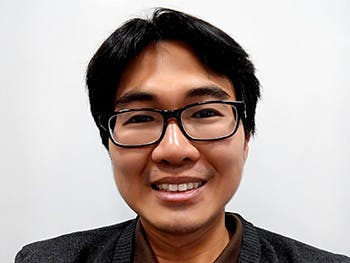UNIVERSITY NEWS LAST UPDATED : 01 JULY 2016

A Filipino researcher is developing a tool to aid in decision-making for the placement of small-scale wind turbines in cities across the Philippines to meet the country’s growing energy demand.
Sherdon Niño Uy from Cauayan, Isabela – and affiliated with the Manila Observatory – has secured a prestigious scholarship with the British Council and the Department of Science and Technology (DOST) of the Philippines to undertake this research at Birmingham City University in the UK as part of a PhD in Engineering.
At present, energy demand in the Philippines is not being met adequately. Rotating brownouts – where electrical power is reduced or restricted in a particular area – have been a common occurrence, especially in southern parts of the country.
Earlier this month, a 12-hour brownout hit Siargao Island due to the installation of new relay posts and servicing of equipment.
Meanwhile, in April this year, the Luzon grid was placed on ‘red alert’ when peak demand reached an all-time high of 9,746 megawatts. It is thought that dwindling energy reserves and a spike in demand due to the summer heat may lead to rotating brownouts around the capital area.
Renewable energy – such as wind power – can address the growing demand for electricity, which is needed to ensure future economic development for the Philippines. Wind power can also avert the use of power barges, which are both costly and unsustainable.
However, wind energy as a power source must be implemented with small-scale wind turbines at strategic locations within a metropolis, where wind resource is at its strongest, yet space is limited. Nino’s research aims to develop a decision support system for wind resource assessment that is useful for cities, such as Manila, in order to aid in decision-making for the placement of small-scale wind turbines within an urban area.
“The multicultural and research-oriented study plan of the UK is conducive for a PhD programme. Exposure to such an environment with various backgrounds will enrich me as a person and make me become aware of the broader world. Since the focus is on research, I will develop practical skills and craft research studies that are useful to society. Thus, I will be trained to solve real-world problems.
“People are really friendly, helpful and accommodating at Birmingham City University, so it was easy for me to adjust to the way of life in the UK. They helped me settle down quickly in a new place and arranged activities for me to meet fellow students.
“My supervisors, colleagues and administrators at Birmingham City University are always ready to offer any help that I might need, whether in academic or personal matters. I made new friends in the first few months I have been studying here and I look forward to many more great experiences that will come during my stay here.”
Niño’s scholarship has been made possible through funding from the Newton Agham Programme, which involves the British Council in the Philippines working in partnership with the Government of the Philippines through DOST to deliver initiatives that benefit Filipino researchers and build sustainable, long-lasting links between the UK and the Philippines.
The Newton Agham Programme is providing £3 million to develop science and innovation partnerships that promote the economic development and social welfare of the Philippines.
Professor Craig Chapman welcomed Niño as the latest addition to a growing international PhD student community studying at Birmingham City University’s Knowledge Based Engineering (KBE) Lab and said:
“Nino is a welcome member of our Lab and is already showing great promise, full of energetic curiosity and sharp intellect. The Newton Agham Programme has brought two countries together in the pursuit of developing research with the potential to impact the field of study.
“The workshop was held at Birmingham City University and Niño got the chance to work with the KBE Lab’s industrial partners, Rolls-Royce, as well as academic partners from the Norwegian University of Science and Technology (NTNU) in Norway and the Technion – Israel Institute of Technology.”